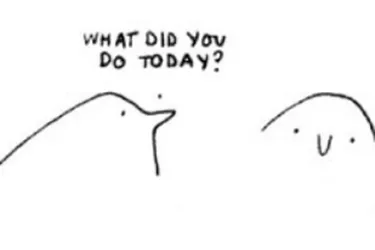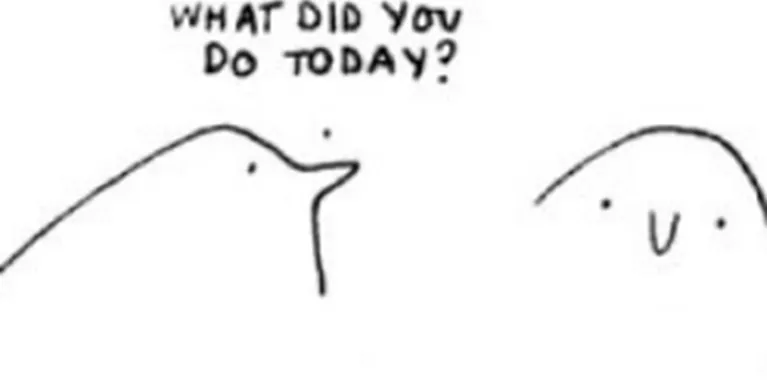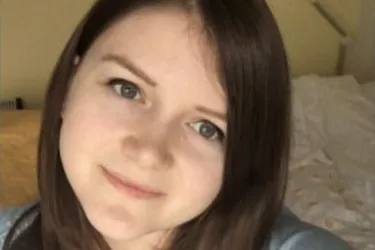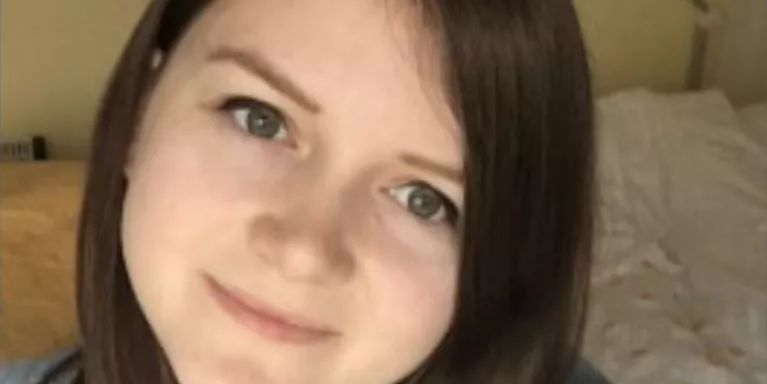Tackling negative thoughts with distraction
Polly blogs about four distraction techniques she's come up with to help her through depression.
Polly Allen is a journalist from Sussex who's lived with clinical depression since 2007. She blogs as The Travelling Calavera.
Cheer up. Keep smiling. Count yourself lucky. Be positive. Snap out of it. I've lost count of the number of times well-meaning people have said these phrases to me, as though depression will lift if only I stop indulging in all this negative thinking.
If only it were that simple, I'd sign up for a crash course in optimism on the spot, but mental illness isn't so easily dealt with. I know what it's like to be crushed under the weight of anger, disappointment and my own high standards, criticising my every moment and never pausing for breath. Nearly a decade of negative self-talk took its toll and I didn't know what it felt like to be optimistic about anything in my life.
"I remember sitting in Buddhist meditation classes wondering when my sense of inner peace would kick in - it didn't."
We all know there are loads of well-publicised ways of trying to combat negative thoughts. I'm sure you've read about meditation, mindfulness, and the importance of exercise, but these activities can seem like impossible challenges when you're having a tough time. I've tried them all, and found them difficult to approach during depressive episodes. Learning to concentrate, let alone banish all negativity and worry, seems like an impossible challenge.
I remember sitting in Buddhist meditation classes wondering when my sense of inner peace would kick in (it didn't. I was too distracted by pretty much everything, including a fly buzzing around the room, all the things I hadn't achieved that week, and whether I'd actually locked the car). I felt powerless to stop automatically punishing myself, and it took me to a very dark place many times.
However, small-scale distraction techniques - the really manageable ones - can really help when you're surrounded by ruminating thoughts and waiting for talking therapy. Here are some that have helped me.
"I found this particularly useful during my darkest moments, when I could barely concentrate to read or write at all."
Puzzles
They're not exactly rock 'n' roll, but puzzles were recommended to me by a counsellor a couple of years ago, as a way of disrupting my negative thoughts with some simple problem solving. Start with easy Sudoku or crosswords printed out from the internet, or try something physical like a jigsaw, which you can buy cheaply from charity shops. Don't set time limits, but just try little bursts of activity and take a break if it becomes too frustrating.
Set yourself a simple task with your puzzle, like finding all the edge pieces for the jigsaw, then sorting the sky-printed pieces from the others; each element can be broken down and the puzzle slowly becomes addictive. I found this particularly useful during my darkest moments, when I could barely concentrate to read or write at all, but I could always see the shapes on the board. Whilst solving a puzzle doesn't solve a health crisis, it gives a much-needed break from self-loathing.
Undemanding TV Programs
The goal is to seek out the telly equivalent of the 'easy listening' music genre - something which requires zero effort but just enough attention to distract you. Structured reality shows, such as Keeping Up With The Kardashians or TOWIE, are ideal. I'm proud to say I've been so caught up in watching The Millionaire Matchmaker (where rich people are fixed up by an agency and attend a horrendous 'mixer' to choose their date) or The Real Housewives of Cheshire (where a birthday party for a rabbit got half an episode of airtime) that my brain has forgotten to bombard me with its usual barrage of critical thoughts during the entire episode - something I couldn't manage in a ten minute attempt at meditation.
"You can at least lose yourself for half an hour in the weird world of TV."
Other mindless favourites include Long Island Medium (an impeccably manicured psychic visits clients in their homes), and Psychic Detectives (psychics help police to solve crimes in America). Alternatively, I'd recommend a classic British comedy like 'Allo 'Allo, which sticks to a formula and is gently funny, with no complex plot lines to follow. Belly laughs may not be possible for you right now, but you can at least lose yourself for half an hour in the weird world of TV. If you do need something more cerebral, try Poirot or Murder She Wrote.
Pampering
It may sound daft to spend some time pampering yourself, because depression can (wrongly) make you feel selfish and guilty. The thing is, your body is crying out to be looked after; you're mentally and physically burned out and you don't have anything to give. But think of a small pampering task as something to keep you occupied, rather than a self-indulgent exercise, and try to engage with it.
You don't have to leave the house to do this - just set aside five or 10 minutes to paint your nails, soak your feet or put on a cooling eye mask, then try to make it a daily or weekly ritual. If you do have some spare cash or perhaps a birthday coming up, treat yourself to a back, neck and shoulder massage, either from a mobile therapist or at a local spa. The emotional tension you've been carrying will have turned itself into physical aches and pains, but working out that tension helps. Plus, therapists aren't that chatty when you've got your head stuck through a massage table, so you won't have to make much small talk.
Self-Esteem Scrapbook
This is an ongoing project to tackle depression, anxiety and cripplingly low self-esteem. It sounds cheesy, but a scrapbook filled with motivational quotes and useful images can really helpful during darker times. Pick your quotes carefully - 'Keep calm and carry on' is useless and belittling during a depressive episode, but 'You deserve to take up space' (attributed to Chimamanda Ngozi Adichie) is reassuring. This is not a diary or a place for negative thoughts; think of it as a guide, and something you can build on over time. I've added quotes from useful books as I've read them, putting in wise words from Ruby Wax, Matt Haig and Sally Brampton.
"Pugs in costumes (why not?!), black and white vintage photos and beautiful artwork, sit alongside all those quotes."
I've also gathered images for my book, including pugs in costumes (why not?!), black and white vintage photos and beautiful artwork, to sit alongside all those quotes. I don't show the scrapbook to anyone else, or leave it on the coffee table, because it's personal, but you may want to share yours with a carer or friend. You could also ask them to write you an uplifting message to stick inside.
I hope some of these tactics will strike a chord with you. Negative thoughts aren't easy to deal with, but anything positive you can do to break the cycle will make a difference.
Do you have any simple tactics that have worked for you? Please share them below.


Information and support
When you’re living with a mental health problem, or supporting someone who is, having access to the right information - about a condition, treatment options, or practical issues - is vital. Visit our information pages to find out more.
Share your story with others
Blogs and stories can show that people with mental health problems are cared about, understood and listened to. We can use it to challenge the status quo and change attitudes.

















